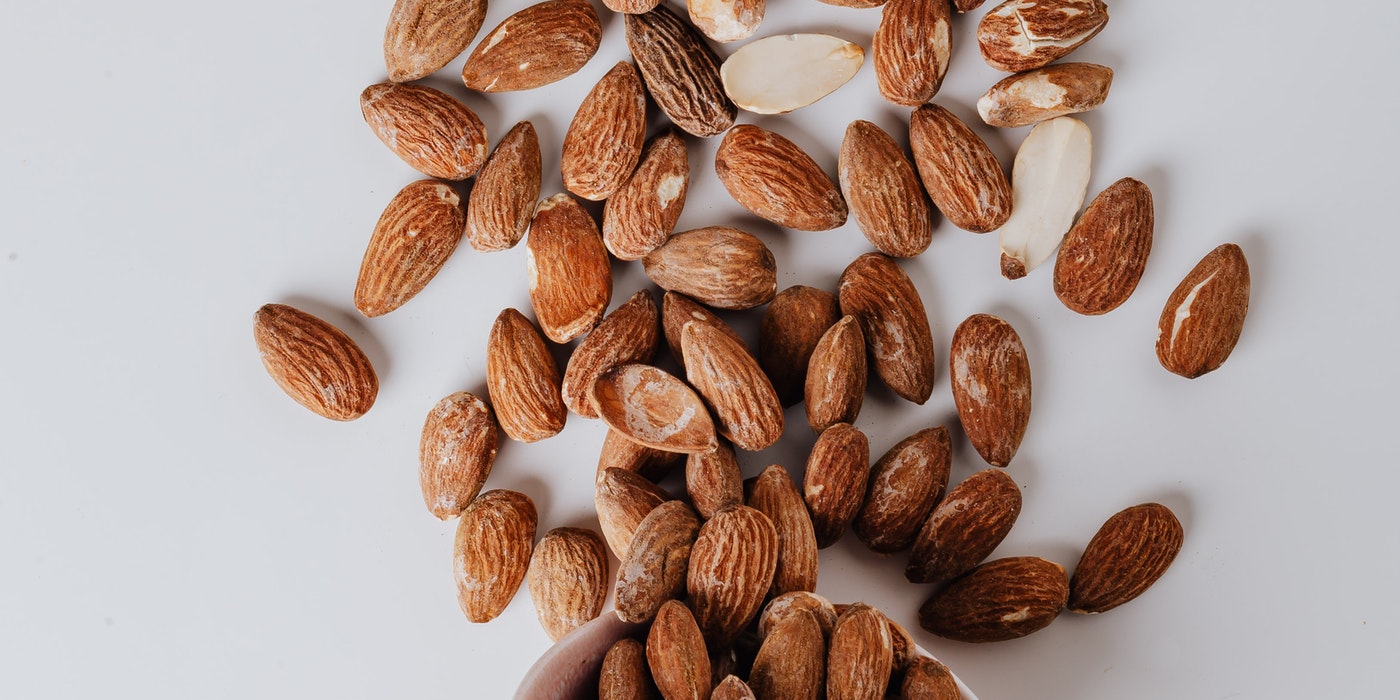What Are the Nutrients that Women Need?
Trying to balance the demands of family, work, or school, as well as dealing with media pressure to look and eat a certain way, can make it difficult for any woman to maintain a healthy diet. However, the right food can not only improve your mood, increase your energy, and help you maintain a healthy weight; it can also help you navigate the various stages of a woman’s life.
Many women are prone to overlooking their dietary requirements. You may believe that you are too busy to eat well or that you are accustomed to putting your family’s needs ahead of yours. Or perhaps you’re trying to stick to an extreme diet that’s depriving you of essential nutrients and leaving you cranky, hungry, and tired.
Dietary research frequently overlooks the specific needs of women. Nutritional studies commonly use male subjects whose hormone levels are more stable and predictable, making the results irrelevant or even misleading to women’s needs. All of these can lead to serious nutritional deficiencies in your daily diet.
Nutrition is important at every stage of a woman’s life. A woman’s nutritional needs differ from those of a man because their bodies undergo different changes during menstruation, pregnancy, breastfeeding, and menopause.
So, whether you want to boost your energy and mood, combat stress or PMS, boost fertility, have a healthy pregnancy, or ease the symptoms of menopause, these nutrition tips can help you stay healthy, active, and vibrant throughout your ever-changing life.
What Are the Vital Nutrients that Women Require?
Adolescence
Adolescence is a critical period because the nutrients required to support growth and development are high. Iron, calcium, and protein are essential nutrients for adolescent girls.
Calcium
Adolescents require calcium for the development of healthy bones and teeth. During the pre-pubertal growth spurt, calcium requirements increase. Adolescence is an important time for developing strong bones. Calcium deficiency can result in low bone mineral density, poor bone mineralization, bone deformities, and an increased risk of osteoporosis later in life. Calcium can help relieve PMS symptoms and prevent excessive weight gain during adolescence. The daily calcium intake recommendation for adolescents aged 15 to 18 years is 800mg.
Calcium is found in dairy products such as milk, cheese, and yogurt, as well as soy products such as tofu. Other calcium sources include fish with edible bones, green leafy vegetables, and nuts.
Iron
Iron is a micronutrient that is required for growth and brain development. Adolescent girls require more iron during menstruation because it makes them vulnerable to iron deficiency. As a result, they are more prone to anemia.
Anemia is characterized by hemoglobin levels that are less than 12 g/dl. Anemia in adolescent girls can impair growth, academic performance, and mental health. Women in developing countries have a high prevalence of anemia. Adolescent girls between the ages of 15 and 18 need 16mg of iron per day.
A high-iron diet is essential for ensuring development and combating anemia. Iron-rich foods include beef, lamb, organ meats (liver), green leafy vegetables, and fortified cereals.
Consumption of vitamin C-rich foods, such as citrus fruits, also aids iron absorption.
Protein
Protein is necessary for life and should be consumed with each meal. The amount of protein you require is determined by your height and level of activity. In general, teenage girls require approximately 46 grams per day. Protein, in effect, is necessary for muscle growth and maintenance. Dairy products (yogurt, milk, eggs), chicken, fish, lean meats, and many others are good sources of protein.
Pregnancy and Lactating
 During pregnancy, a woman’s nutritional requirements are extremely high. Eating healthy is essential for meeting the nutritional needs of the developing fetus as well as the mother’s health. Eating healthy refers to the quality of one’s diet rather than the quantity of food consumed. A healthy balanced diet is enough to meet the nutritional demands of pregnancy while also promoting the growth and development of the fetus. However, folate, iron, calcium, iodine, and zinc are given special consideration.
During pregnancy, a woman’s nutritional requirements are extremely high. Eating healthy is essential for meeting the nutritional needs of the developing fetus as well as the mother’s health. Eating healthy refers to the quality of one’s diet rather than the quantity of food consumed. A healthy balanced diet is enough to meet the nutritional demands of pregnancy while also promoting the growth and development of the fetus. However, folate, iron, calcium, iodine, and zinc are given special consideration.
Folate
Folate is a B vitamin that aids in the prevention of birth defects such as spina bifida and anencephaly. Folate is recommended for pregnant women to prevent neural tube defects and to aid in the growth and development of new cells. It is also essential for fetal development and lactation.
Pregnant women need 600mcg of folate per day. Green leafy vegetables, dried beans and peas, citrus fruits, and fortified cereals are all good sources of folate.
Iron
During pregnancy, women require more iron to support the growing baby and placenta. In iron- deficient pregnant women, the risk of having a preterm or low birth weight baby increases.
During pregnancy, the average iron requirement is 22 to 27mg/day. Red meat and organ meats are the best sources of iron.
Calcium
An expectant mother’s calcium requirement increases due to physiological changes during pregnancy. Calcium is required for the development of bones and teeth in the fetus. Calcium is also required for proper circulatory, muscular, and nervous system function. A pregnant woman’s daily calcium intake should be 1000mg. Calcium-rich foods include dairy products, fish, tofu, dried fruits (apricots and figs), and green leafy vegetables (broccoli and kale).
Iodine
Iodine is a mineral that is required by the developing fetus. It is required for thyroid hormone production, body temperature regulation, growth, metabolic rate, blood cell production, and nerve and muscle function. Iodine deficiency during pregnancy can lead to learning difficulties and motor nerve impairments in children later in life.
During pregnancy, the recommended iodine intake is 220g per day. Including iodized salt, seafood in the diet, or supplementing with multivitamins containing iodine are all safe ways to increase iodine intake during pregnancy.
Vitamin C
Vitamin C is required for the formation of healthy gums, teeth, and body tissues. During pregnancy, the daily requirement for vitamin C is 40 to 60mg. Citrus fruits, papaya, strawberries, capsicum, and broccoli are the best sources of vitamin C.
Zinc
 Zinc is required for rapid cell growth during pregnancy. It also contributes to the structural integrity. During pregnancy, the daily zinc requirement is 11mg. Zinc is found in foods such as lean meat, seafood, whole grains, legumes, and nuts.
Zinc is required for rapid cell growth during pregnancy. It also contributes to the structural integrity. During pregnancy, the daily zinc requirement is 11mg. Zinc is found in foods such as lean meat, seafood, whole grains, legumes, and nuts.
Protein
Protein is essential for fetal growth, especially during the second and third trimesters. Pregnant women need 71 grams of protein per day. Lean meat, fish, and eggs are examples of protein-rich foods. Dried beans, dairy products, and peanut butter are all plant-based protein sources. It is also important to note that a healthy balanced diet is essential during breastfeeding because mothers must meet their nutrient requirements as well as produce breast milk. Protein, calcium, iron, vitamins, and fluids are essential nutrients during pregnancy. Lactating women should eat a variety of healthy foods from all food groups.
Menopause
Menopause is a period of transition, marking the end of the reproductive years. Menopause is caused by a decrease or absence of the female hormone estrogen, which is produced by the ovaries. Women enter menopause between the ages of 40 and 50. Menopause can affect energy levels, memory, bone health, heart health, and hormone levels. Each woman’s menopausal symptoms are unique. Hot flashes, weight gain, sleep disturbances, and mood changes are all common symptoms. Some women, however, show no symptoms at all. During menopause, good nutrition and healthy lifestyle changes are critical. Eating healthily and engaging in regular physical activity can help women maintain their health during and after menopause.
Antioxidants
Free radicals can harm cell components such as protein, lipids, and DNA. The aging process is accelerated by free radical damage. Antioxidants like vitamins A, C, and E are needed to scavenge free radicals and protect the body from damage. Carrots, broccoli, sweet potatoes, kale, spinach, leafy vegetables, pumpkin, and liver are all good sources of vitamin A. Citrus fruits, kiwi, berries (such as blackberries, blueberries, and strawberries), peppers, sprouts, kale, and spring greens are all high in vitamin C. Avocado, almonds, hazelnuts, seeds, and green leafy vegetables are high in vitamin E. Wheat germ, whole grain foods, and milk are all good sources of iron.
Omega 3 Fatty Acids
Omega 3 and omega 6 fatty acids are referred to as essential fatty acids because the body cannot synthesize them and must obtain them through diet. In postmenopausal women, omega-3 fatty acids are beneficial in reducing depression symptoms and the occurrence of hot flashes. Omega-3 fatty acids are also beneficial to cardiovascular health. Flax seeds, pumpkin seeds, fish oil, walnuts, and fish such as sardines, salmon, and anchovies are excellent sources of omega-3 fatty acids.
Calcium
Menopause causes a decrease in bone mineral density, which can contribute to osteoporosis. The bones become brittle and fragile as a result of tissue loss caused by hormonal changes and a calcium or vitamin D deficiency. Increasing calcium intake is essential for maintaining healthy bone density. Milk, cheese, yogurt, seafood, broccoli, nuts, and seeds are all calcium-rich foods.
Calcium must be supplemented with phosphorus and vitamin D in order for it to be absorbed and deposited in the bones. Meat, cheese, onions, and garlic are examples of phosphorus-rich foods.
Oily fish, lentils, eggs, and fortified milk are all good sources of vitamin D.
Now you know…
Having to balance family life, professional life, and health care can be difficult for women.
Women may find it difficult to make healthy food choices as a result of this. However, making healthy food choices and making simple lifestyle changes can have a significant impact on one’s health. Eating well helps to reduce the risk of chronic diseases, help have healthy pregnancies, and have a good quality of life.




